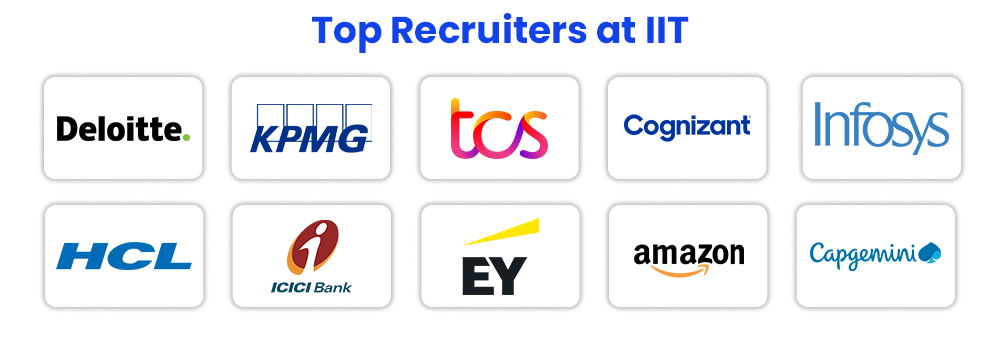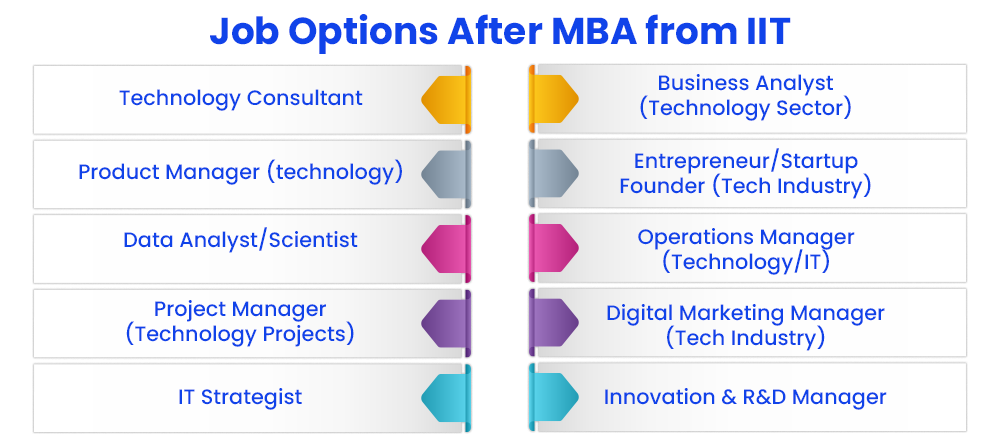Expert Interviews
- University Reviews
- Career Guide
 Video Counseling
Video CounselingImportant Facts
- Ask any Question - CV Forum

IIM V/S IIT: Which Is Better In 2026?, MBA Online, Salary
Priya Pandey Jan 23, 2026 12.9K Reads

When you talk about an MBA, the Indian Institutes of Management (IIMs) are the first choices that come to your mind. Not many people know that some of the Indian Institutes of Technology (IITs) are also among the top business schools in India. IIT Delhi has been ranked as the 4th best institution for an MBA program by NIRF in 2024. Both IIMs and IITs are prestigious institutions offering world-class education and facilities.
This is why aspiring professionals often find themselves at a crossroads, faced with a significant decision: pursue an MBA from the prestigious IIMs or opt for the equally esteemed IITs. Each institution holds a distinct allure, with its own set of strengths and specialisations, leaving candidates in a quandary. This blog provides an in-depth analysis of the merits and unique offerings of an MBA from IIM versus an MBA from IIT.
|
|
|
|
|
|
|
|
|
|
|
|
|
|
|
|
|
|
|
|
|
The dichotomy between IIMs and IITs in the realm of management education presents a fascinating narrative. On one hand, the IIMs, renowned for their exclusive focus on business administration, offer a comprehensive curriculum designed to forge astute leaders and strategic thinkers. On the other hand, the IITs, steeped in a legacy of engineering and technology, bring to the table a blend of management acumen and technical prowess, tailor-made for roles in technology-driven industries.
In this blog, we will be discussing the key facets of academic rigour, pedagogy, campus culture, alumni networks, and placement opportunities, dissecting the strengths and nuances of each institution. Moreover, we will scrutinise how the academic landscapes of IIMs and IITs mould future leaders, equipping them with the skills and knowledge necessary to excel in today's dynamic business environment. By the end of this blog, you'll be armed with the insights needed to make an informed decision, one that aligns perfectly with your professional aspirations and long-term goals.
IIM vs IIT - How to Choose One for MBA?
When deciding between an MBA from IIM and an MBA from IIT, consider your personal strengths, career goals, and areas of interest. Both institutions offer exceptional education, but their unique characteristics can cater to different professional aspirations. If you're inclined towards a more traditional management education with a strong focus on business administration, an IIM might be the better choice. On the other hand, if you have a keen interest in the intersection of technology and business, an IIT with an MBA program could provide a unique edge. Additionally, factors like location, campus culture, and extracurricular opportunities should also be taken into account.
|
|
||
|
|
|
|
|
|
|
66.69 |
|
|
73 |
48.80 |
|
|
54 |
52.54 |
|
|
|
83.09 |
|
|
|
86.66 |
|
|
15 |
64.83 |
|
|
|
63.42 |
|
|
|
71.86 |
|
|
|
71.55 |
|
|
|
64.72 |
|
|
|
50.53 |
|
|
28 |
60.61 |
|
|
|
82.79 |
|
|
5 |
76.88 |
|
|
|
89.46 |
|
|
|
59.86 |
|
|
|
50.24 |
|
|
34 |
58.40 |
|
|
6 |
76.00 |
|
|
|
61.56 |
|
|
61 |
50.58 |
Both IIMs and IITs are highly reputable institutions, and whichever path you choose, you're likely to receive a top-notch education. It's essential to align your choice with your long-term career aspirations and the specific skills you want to develop.
|
|
||
|
|
|
|
|
|
|
83.32 |
|
|
47 |
52.57 |
|
|
|
81.16 |
|
|
|
73.53 |
|
|
|
54.64 |
|
|
23 |
60.82 |
|
|
|
77.90 |
|
|
7 |
74.43 |
|
|
31 |
56.94 |
|
|
|
64.40 |
|
|
17 |
61.27 |
|
|
|
66.49 |
|
|
|
51.47 |
|
|
|
60.49 |
|
|
57 |
50.92 |
|
|
27 |
57.67 |
|
|
22 |
60.93 |
|
|
|
59.20 |
Remember, the best choice ultimately depends on how well the program aligns with your long-term career vision and personal development goals. Take the time to thoroughly research each institution and program, and consider reaching out to current students or alumni for firsthand insights.
IIM v/s IIT
1. Academic Focus
IIMs:
The Indian Institutes of Management (IIMs) are revered for their comprehensive management education. Their curriculum is meticulously designed to cover all facets of business administration. This encompasses core subjects like finance, marketing, operations, human resources, strategy, and more. The coursework is geared towards developing a strong foundation in managerial skills and strategic thinking.
IITs:
IITs, stemming from their engineering and technological heritage, may incorporate a distinct flavour of technology-driven management education. This means that in addition to conventional business modules, you may find a stronger emphasis on quantitative methods, data-driven decision-making, and courses that delve into the intersection of technology and business. This technical underpinning can be particularly advantageous for roles in technology-driven industries or sectors that require a blend of technical and managerial expertise.
2. Pedagogy
IIMs:
IIMs are well-known for their case-based learning approach. This methodology places students in the shoes of decision-makers faced with real-world business scenarios. Through analysis and discussion, students develop critical thinking, problem-solving, and decision-making skills. The interactive nature of this pedagogical approach fosters a dynamic learning environment.
IITs:
In IITs, you might notice a pedagogical style influenced by their engineering background. This could mean a more rigorous quantitative and analytical approach, with a focus on utilising data and technology for decision-making. Some IITs may even incorporate coding, analytics, and other technical skills into their curriculum. This approach prepares students for roles that require a deep understanding of technology and its application in business.
3. Campus Culture and Diversity
IIMs:
The IIMs are known for their vibrant and diverse campus environments. They attract students from various academic backgrounds, industries, and sometimes even different countries. This diversity enriches the learning experience by providing a range of perspectives and approaches to problem-solving. Additionally, IIM campuses often buzz with extracurricular activities, seminars, and workshops, creating a holistic learning environment.
IITs:
IITs also boast a diverse student body, but the diversity may lean more towards engineering and technology disciplines. This can be an advantage if you're looking to build a network in the tech industry. The campus culture might reflect the technical inclinations of the institution, with a strong emphasis on innovation and entrepreneurship. You're likely to find a multitude of tech-related clubs, hackathons, and innovation competitions.
4. Alumni Network
IIMs:
The IIMs have one of the most extensive and influential alumni networks in the country. Graduates from IIMs are scattered across industries and hold prominent positions in various organisations. This network can be a substantial asset for mentorship, job placements, and business connections.
IITs:
IITs, particularly in recent years, have been strengthening their alumni networks, especially in the context of their MBA programs. While the network may be more technology-centric, it's invaluable if you're looking to dive into tech-driven sectors. This network can open doors in technology companies, startups, and industries where a technical edge is highly prized.
5. Placement Opportunities
IIMs:
IIMs have an unparalleled track record when it comes to placements. Their strong industry connections and reputation mean that leading companies, both in India and internationally, actively recruit from IIMs. Graduates often receive competitive salary offers and have access to a wide range of job opportunities across sectors.

IITs:
While IITs are predominantly known for engineering, their MBA programs have been gaining prominence. Graduates from IITs, particularly those with an MBA, are highly sought after, especially in industries that require a unique blend of technical and managerial skills. This can include roles in technology consulting, IT project management, and strategic positions in tech-driven companies.

6. Online Education
IIMs:
IIM Raipur has been the first IIM to come up with the complete 2-year online MBA program. The institute has recently started with this full-fledged online MBA program because earlier the IIMs were only offering short-term certificate or diploma courses in Management in the online mode. After so many universities in India started offering the online MBA program, IIM also finally came up with theirs. Currently, only IIM Raipur offers the 2-year online MBA course. Other IIMs offer 1-year online executive MBA for working professionals, or certificate/diploma courses, or Executive Development Programs (EDP) also for working professionals.
|
|
|
|
|
|
|
|
|
|
|
|
|
|
|
|
|
|
The IIM online MBA program is definitely one of a kind as it mirrors their traditional on-campus MBA program, which is also IIMs flagship program. The curriculum of IIM online MBA is similar to its on-campus counterpart but with a much more flexible outlook. You get to learn from the esteemed faculty of IIM. It is like pursuing an MBA from IIM but just virtually sitting at home instead of sitting in the college classroom.
IITs:
While IIM has started offering the online MBA program, IITs are yet to join the race. IITs do not offer their MBA program in the online mode. If you wish to pursue an MBA from IIT, then it has to be a traditional on-campus MBA program and not the digitalised online MBA program.
If you wish to explore the option of an online MBA, then IIM is not the only good college. You have a lot of options from among the top institutions and universities in India that are approved by UGC-DEB for offering MBA degrees in online mode. You can visit collegevidya.com to learn all the details about online MBA and all the list of all the approved colleges for the same.
7. Eligibility Requirements
IIMs:
IIMs typically require candidates to have completed a Bachelor's degree with a minimum percentage (usually around 50% or equivalent GPA). Additionally, they require candidates to qualify in the national-level management entrance exam which they conduct known as CAT (Common Admission Test).
IITs:
For MBA programs in IITs, candidates usually need a Bachelor's degree in any discipline with a certain minimum percentage (often around 60% or equivalent GPA). Additionally, they need to qualify in exams like CAT, MAT (Management Aptitude Test), or the institute's own entrance exam.
8. Admission Procedure
IIMs:
The admission process for IIMs is highly competitive and typically involves multiple stages. It starts with the selection based on the CAT score. Shortlisted candidates then face a Written Ability Test (WAT), Group Discussion (GD), and Personal Interview (PI) round. Some IIMs may also consider factors like academic performance, work experience, and diversity.
IITs:
Admission procedures for MBA programs in IITs vary across institutes. They may use exams like CAT, MAT, or their own entrance tests. Shortlisted candidates then go through rounds of Group Discussions, Written Ability Test, and Personal Interviews. Some IITs may also consider academic background, work experience, and other criteria.
9. Fee Structure
IIMs:
The fee structure for MBA programs in IIMs can vary significantly depending on the institute and the program. On average, the total cost of an MBA from an IIM can range from INR 20-25 lakhs. However, IIMs often offer scholarships, financial aid, and loans to deserving candidates.
IITs:
MBA programs in IITs generally have a more moderate fee structure compared to IIMs. The cost can range from INR 18-22 lakhs. Additionally, many IITs provide financial assistance and scholarships to eligible students.
10. Career Prospects
IIMs:
Graduates from IIMs are highly sought after by leading companies globally. They often command competitive salaries and hold prominent positions in various industries. The extensive alumni network and strong industry connections of IIMs facilitate excellent placement opportunities.

IITs:
MBA graduates from IITs, especially those with a strong technical background, are in high demand, particularly in technology-driven industries. They often excel in roles that require a blend of technical expertise and managerial acumen. The robust network of IIT alumni can open doors in technology companies, startups, consulting firms, and more.

11. Curriculum & Specialisations
IIMs:
IIMs provide a diverse range of specialisations in management, including Finance, Marketing, Operations, Human Resources, Strategy, and more. The curriculum is meticulously designed to cover all facets of business administration, preparing students for leadership roles across industries.
IITs:
MBA programs in IITs often have a unique blend of management and technology-related subjects. This can include specialisations like Technology Management, Information Systems, Operations Management, and more. The focus may be on preparing students for roles that require a strong understanding of technology and business integration.
12. Average Salary
The average salary of an MBA graduate from both IIMs and IITs can vary widely depending on factors like the specific institute, the industry, the student's prior work experience, and the economic conditions at the time of graduation.
On average, MBA graduates from IIMs tend to command higher salaries compared to those from IITs. This is primarily because IIMs have a longer history of offering MBA programs and have a well-established reputation in the field of management education.
IIMs:
The average salary for an MBA graduate from an IIM could range from around INR 20 lakhs to well over INR 30 lakhs per annum. Some top IIMs may even see average salaries exceed INR 40 lakhs in certain years for their flagship programs.
IITs:
For MBA graduates from IITs, the average salary may range from INR 12 lakhs to INR 20 lakhs per annum. However, it's important to note that MBA programs at IITs are relatively newer compared to those at IIMs, and the average salaries have been steadily increasing over the years.
IIM vs IIT Which is Tough to get Admission?
Getting into an MBA program at an IIM (Indian Institutes of Management) is generally considered more competitive and challenging compared to gaining admission into an MBA program at an IIT (Indian Institutes of Technology). Here's why:
MBA at IIM
Highly Competitive Entrance Exam:
- The primary entrance exam for MBA programs in IIMs is the Common Admission Test (CAT), which is known for its rigorous difficulty level.
- CAT assesses candidates' aptitude in Quantitative Ability, Verbal Ability, and Data Interpretation & Logical Reasoning.
Exceptionally High CAT Percentile:
- To secure a spot in a reputed IIM, candidates typically need to score in the top percentile of CAT takers nationwide. The exact cutoffs can vary each year and between different IIMs.
Rigorous Selection Process:
- Shortlisted candidates go through additional rounds such as Written Ability Test (WAT), Group Discussion (GD), and Personal Interview (PI).
- These rounds evaluate candidates' communication skills, analytical thinking, and suitability for the MBA program.
Academic Excellence and Work Experience:
- While CAT scores hold significant weight, IIMs also consider academic performance in graduation and, in some cases, work experience.
MBA at IIT
Competitive Entrance Exams:
- Entrance exams for MBA programs at IITs include CAT (commonly), but some IITs also conduct their own entrance exams.
High Standards, but Typically Slightly Lower Cutoffs:
- While MBA programs at IITs are also competitive, the cutoffs for admission are generally slightly lower compared to the top IIMs.
Varied Selection Criteria:
- IITs may place emphasis on factors like CAT scores, academic performance, work experience, and performance in group discussions and interviews.
In summary, while both IITs and IIMs are renowned institutions, admission to MBA programs in IIMs is often considered more challenging due to the extremely competitive nature of the CAT exam and the high percentile requirements for selection. However, it's important to note that both institutions offer excellent MBA programs, and admission criteria can vary between different IIMs and IITs. Candidates should carefully research and prepare for the specific requirements of the programs they are interested in.
Final Verdict- IIM vs IIT Which is Better for MBA?
Choosing an institution to pursue an MBA degree is a very subjective decision as Management is a very dynamic subject with aspirants having quite varied career goals and aspirations. So, first set your primary goals and then according to your needs, select the institution. Given below is a brief summary of the strengths of each institution’s MBA programs and the considerations you need before making a decision.
Pursuing an MBA from IIT
Strengths
- Technical Expertise: If you have a strong background or interest in technology and want to leverage it in your managerial role, an MBA from an IIT can provide a unique edge. The curriculum often combines management principles with a focus on technology-driven industries.
- Interdisciplinary Opportunities: IITs are known for their strong engineering and technical programs. This can be advantageous if you're interested in roles that require a blend of technical and managerial skills, such as technology consulting or project management.
- Innovation and Entrepreneurship: IITs foster a culture of innovation and entrepreneurship. You may have access to research labs, startup incubation centres, and opportunities to collaborate with engineers and scientists on innovative projects.
Considerations
- Management Emphasis: While IITs offer MBA programs, their primary focus has historically been on engineering and technology. The management programs may not have the same depth of business-focused curriculum as those offered by IIMs.
- Industry Network: The network of IIT alumni is strong in technology and engineering sectors. If your career goals are not directly aligned with these industries, you may need to make extra efforts to establish connections in other sectors.

Pursuing an MBA from IIM
Strengths
- Comprehensive Business Education: IIMs are dedicated solely to management education. They offer a specialised curriculum designed to develop strong managerial skills, strategic thinking, and leadership abilities across various business functions.
- Diverse Network: IIMs attract students from diverse academic and professional backgrounds. This diversity enriches the learning experience and provides opportunities to network with individuals from various industries and domains.
- Established Reputation: IIMs are globally recognized and have a long-standing reputation for providing high-quality management education. This reputation often leads to strong industry connections and excellent placement opportunities.
Considerations
- Technical Depth: If your career aspirations involve a strong technical component or a specific focus on technology-driven industries, an IIM might have a less specialised curriculum compared to an MBA from an IIT.
- Competitive Admission Process: Admission to IIMs is highly competitive, with stringent cutoffs and a rigorous selection process. Achieving a high percentile in entrance exams like CAT is essential.
Ultimately, the "better" option depends on your personal career goals and interests. If you're looking for a program that integrates technology and management, an IIT might be a strong choice. On the other hand, if you're seeking a comprehensive business education with a broad network and strong industry connections, an IIM could be the better fit. It's important to carefully research the specific programs and offerings of each institution to make an informed decision.
Top Trending Articles
|
|
|
|
|
|
|
|
|
|
|
|
|
|
|
|
|
|
Conclusion
In the pursuit of higher education, the choice between pursuing an MBA from an IIT or an IIM is a decision of paramount importance. Both institutions offer exceptional education, but their unique characteristics can cater to different professional aspirations. Whether you gravitate towards the technical prowess of an IIT or the holistic business education of an IIM, both institutions offer world-class programs that can shape the trajectory of your professional journey. Additionally, factors like location, campus culture, and extracurricular opportunities should also be taken into account. And if you are a working professional planning to pursue management for career growth, then one of the best options for you is to pursue MBA for working professionals program. It is a blended learning program designed for working professionals, so that they do not have to leave their jobs just to get an MBA degree. Head to College Vidya for more information on this with expert advice.
FAQs (Frequently Asked Questions)
Both institutions offer exceptional education, but their unique characteristics can cater to different professional aspirations. Whether you gravitate towards the technical prowess of an IIT or the holistic business education of an IIM, both institutions offer world-class programs that can shape the trajectory of your professional journey.
Yes, most of the IITs offer MBA programs and are considered as the top institutions for MBA degree courses in India.
Yes, IITs offer excellent MBA programs. IIT Delhi has been ranked as the 4th best B-school in India by NIRF, so you can imagine how good the institution could be.
On average, MBA graduates from IIMs tend to command higher salaries compared to those from IITs. This is primarily because IIMs have a longer history of offering MBA programs and have a well-established reputation in the field of management education.
For both IIM and IIT, students need to appear for the CAT (Common Admission Test) exam and score a good percentile score to be able to make it to the merit list as the cutoff for both the institutes is sky high each year.
Based on the NIRF Ranking 2023, IIT Delhi is the best among the IITs to pursue an MBA degree program.
IIM Raipur offers a 2 year online MBA program but none of the IITs offer an online MBA course as of now.

By Priya Pandey
8 Years of Experience / Storyteller / Research-driven Writer
A passionate content marketer with a keen understanding of audience psychology and a flair for storytelling. Love to transform complex ideas into engaging content for targeted audiences. Use a creative approach for each project and deliver it with precision, ensuring that every piece of content not only educates but also inspires action.
Every query is essential.
Our team of experts, or experienced individuals, will answer it within 24 hours.
Recommended for you
Tired of dealing with call centers!
Get a professional advisor for Career!
LIFETIME FREE
Rs.1499(Exclusive offer for today)

Pooja
MBA 7 yrs exp

Sarthak
M.Com 4 yrs exp

Kapil Gupta
MCA 5 yrs exp
or



Career Finder
(Career Suitability Test)
Explore and Find out your Most Suitable Career Path. Get Started with our Career Finder Tool Now!
ROI Calculator
Find out the expected salary, costs, and ROI of your chosen online university with our free calculator.

